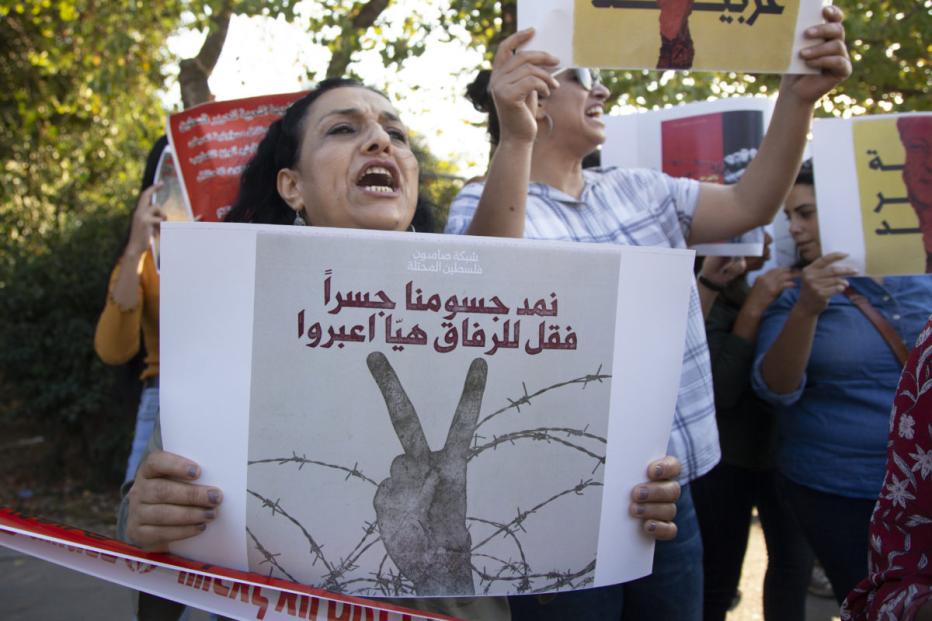The political isolation of Palestinian prisoners

Before the Palestinian anti-colonial struggle became fragmented by concessions to Israel and the international community, Palestinian prisoners were considered an integral component of the struggle for liberation. After the Oslo Accords, Israel retained the upper hand in detaining and imprisoning Palestinians, aided by the Palestinian Authority’s security coordination with the occupation authorities.
The moment that the PA discarded resistance, it also abandoned the Palestinian prisoners, isolating them politically as well as physically. Given the collusion between Israel and the PA when it comes to ensuring a perpetual supply of Palestinians upon whom human rights violations can be practiced, this comes as no surprise. After all, the PA itself tortures Palestinian prisoners, so why should it object when Israel does the same? Furthermore, why would the PA divert attention away from its illusions of state-building and contradict the aims of the Oslo Accords, which marginalised Palestinian prisoners to the point that their link to resistance and the Palestinian people is almost severed?
Apart from a brief statement requesting the International Committee of the Red Cross (ICRC) to allow a medical team to visit tortured Palestinian prisoner Samer Arabeed, the PA has largely kept quiet about the unfolding scandal of his situation, despite protests by Palestinian citizens.
According to the Palestinian Prisoners’ Club, 73 Palestinian prisoners have died as a result of torture in Israeli jails since 1967. While Israel has obtained legal justification for torture from its own courts, the PA has alternated between weak statements, oblivion and the exploitation of Palestinian prisoners. Have those prisoners in Israeli jails become a commodity for the PA to exploit depending on its political agenda?
![Lives of Palestinian prisoners in Israeli jails - Cartoon [Alarabya]](https://i2.wp.com/www.middleeastmonitor.com/wp-content/uploads/2018/04/IMG_4183.jpg?resize=768,666&quality=75&strip=all&ssl=1)
Lives of Palestinian prisoners in Israeli jails – Cartoon [Alarabya]
In 2016, Addameer published a report which discussed the economic exploitation of Palestinian prisoners. It described the exploitation thus: “Just as the Oslo Accords have made Palestinian society responsible for guaranteeing the security of [the] occupier, so has the integration of the PA into the Israeli prison system made Palestinian society responsible for facilitating the imprisonment of those who resist the occupation and colonisation of Palestinian land.”
Samer Arabeed’s case managed to make headlines due to the fact that he was tortured, yet it is not enough to call attention to yet another example of Israel’s abuse of human rights. Palestinian prisoners who are tortured, some of whom have died as a result, are proof of the worst ramifications inflicted upon a segment of Palestinian society that is always shunned politically.
The PA’s commitment to paying stipends for Palestinian prisoners and their families is one form of political exclusion that has become convenient in terms of establishing what constitutes its duty. However, when the prisoners were in the vanguard of the struggle, Palestinian society united behind the same political aims. What the PA has achieved is the dissolution of unity in the Palestinian struggle as well as the glorification of Palestinian prisoners, but only as far as the latter suits its own agenda, of course. In terms of political support, the PA gives nothing, while being careful to differentiate its criticism between prisoners in Israeli jails and those in PA jails when it comes to highlighting human rights violations.
Israel is making a political statement through its imprisonment and torture of Palestinian prisoners. The PA, on the other hand, acquiesces to Israel’s statement by neutralising the importance of Palestinian prisoners to the wider liberation struggle.
Source: Ramona Wadi, Middle East Monitor

WRITE YOUR COMMENT